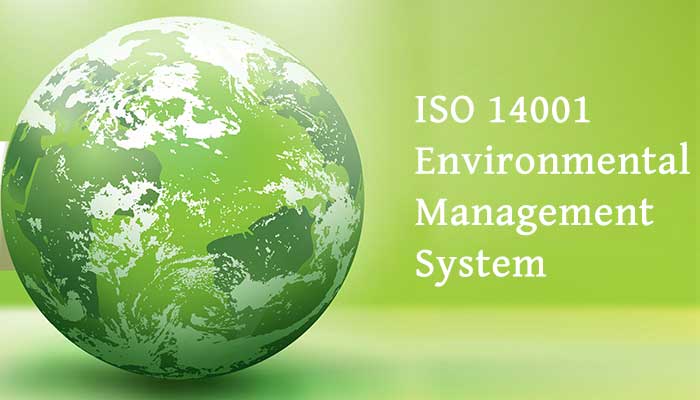What is ISO 14001?
ISO 14001 is an internationally acclaimed standard that provides specific requirements for an environmental  management system. The main role of it is to help organizations in improving their environmental performance through reducing their waste and using their resources more efficiently. This also helps the organization in gaining the trust of stakeholders and gives them a competitive edge.
management system. The main role of it is to help organizations in improving their environmental performance through reducing their waste and using their resources more efficiently. This also helps the organization in gaining the trust of stakeholders and gives them a competitive edge.
Environmental Management System
An environmental management system assists an organization in managing, identifying, controlling and monitoring their environmental problems in a “holistic” manner. All other ISO standards use a high-level structure, like the one for occupational safety and health – ISO 15001, and ISO 9001 which is for quality management. This indicates that the integration of ISO 14001 can be done easily into any of the present ISO management system.
All types and sizes of organizations are suitable for ISO 14001, whether not-for-profit, governmental or private organization. ISO 14001 wants an organization to consider every environmental issue that is related to its operations, like the sewage and water issues, air pollution, resource efficiency and use, waste management, soil contamination and climate change mitigation and adaptation. Like every other ISO management System, ISO 14001 also embraces the need for continuous and consistent improvement of organizations approach and systems to the environmental concerns.
How will it benefit your organization?
There are various reasons why an organization needs to take calculated approach to better its environmental performance. It has been observed by the users of the standard that ISO 14001 assists in demonstrating compliance with the present and future regulatory and statutory needs. It helps in increasing employee engagement and leadership involvement and also improves the confidence of stakeholders and company reputation with the help of strategic communication. Your organization will be able to achieve strategic business aims by integrating environmental issues into business management. Reduced costs and improved efficiency will help in providing your organization with a financial and competitive advantage. It will also encourage better environmental performance of suppliers by incorporating them in the organization’s business systems.
There is regular revision and review done for every ISO standards in order to make sure that they remain competent and relevant to the existing marketplace scenario. ISO 14001:2015 will respond to the recent trends which include the rising recognition by organizations of the requirement to factor in both internal and external elements that sway their environmental effect, like the climate volatility and the competitive context in which they work. The changes also make sure that the standard is compatible with other management system standards.
To get more detailed insights, join this session ISO 14001: Key Changes and Transition by expert speaker David Smart to learn how to generate leads to project manage EMS system implementation, undertake upgrades or audit the system. You’ll also understand how to use eLearning as the vehicle for transferring the knowledge in your organization.



